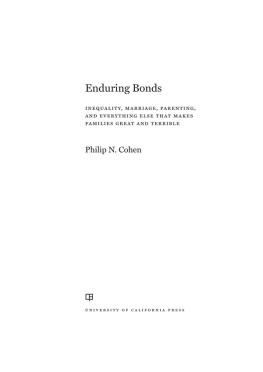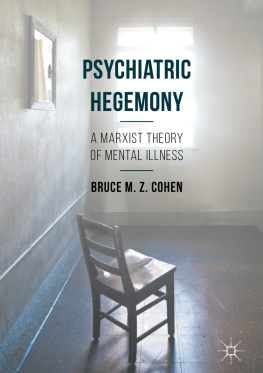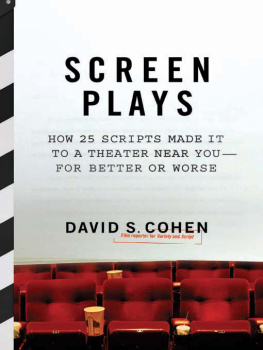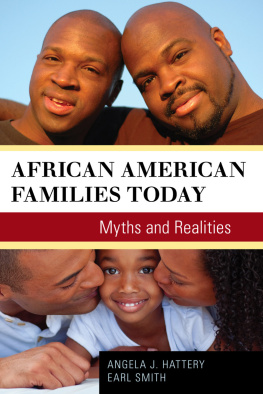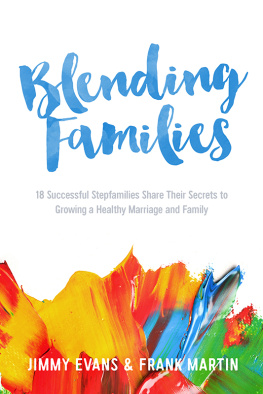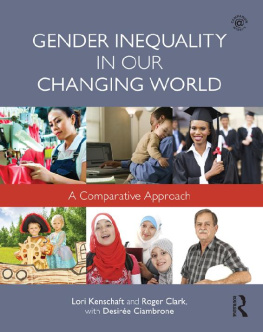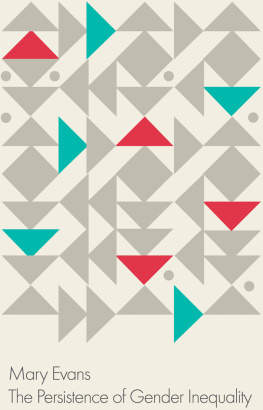Chapter 1.
Chapter 2.
Chapter 3.
Chapter 4.
Chapter 5.
Chapter 6.
Chapter 7.
Chapter 8.
Acknowledgments
All the essays here have been revised and updated from their original appearance on the blog. In many cases I found errors in the old posts or changed my mind about things. In addition, while updating and editing these, I often added new material that was never on the blog (such as the Mary name trend back to 1780). I havent specified how the essays changed so as not to burden the text, but where there are conflicts I prefer the book version. Im a little embarrassed at the prospect of people finding places where I now contradict myself or turned out to be wrong, but thats the price I pay for the great privilege of having conducted this work in public, with all the benefits that entails.
The data sources for the analyses in the book are in the footnotes, which sometimes point to blog posts for more detail. There isnt much complicated programming involved, but in a few cases I provide links to data and computer code for that as well. I made most of the figures using Microsoft Excel, which despite its annoying qualities seems to be the most efficient and versatile tool for data presentation that I happen to know how to use; Im happy to share the underlying data files for any of these if I can find them, so feel free to ask.
I was lucky to write a blog during a time when academic blogs were gathering places for critics and like-minded readers alike. The essays that form the basis for this book benefited directly or indirectly from the exchanges that came out of that milieu. Some people regularly responded in the comments section (almost always a friendly and civil place, Im happy to say), while many others discussed these ideas with me in other settings. At the risk of offending more people than I impress, I list some of the names that come to mind here. I hope they and many other readers will carry on these conversations, which have made my career, and my life, so interesting and rewarding for the last few years: Syed Ali, Esping Anderson, Andy Andrews, Karl Bakeman, Bill Bielby, Khiarra Bridges, Tristan Bridges, Neal Caren, Karen Carr, Megan Carroll, Carrie Clarady, Stephanie Coontz, Carolyn Cowan, Phil Cowan, Emily Danforth, Paula England, Myra Marx Ferree, Tina Fetner, Gary Gates, Claudia Geist, Jennifer Glass, Ted Greenstein, Jessica Hardie, Amy Harmon, Heidi Hartmann, Mike Hout, Matt Huffman, Michelle Janning, Jeehye Kang, Meredith Kleykamp, Rose Kreider, Beth Latshaw, JaeIn Lee, Jennifer Lee, Lucia Lykke, Scott Matthews, David Meyer, Joya Misra, Laura Beth Nielsen, Pam Oliver, CJ Pascoe, Lisa Pearce, Joanna Pepin, Andrew Perrin, Allison Pugh, Rashawn Ray, Vanesa Ribas, Barbara Risman, Virginia Rutter, Liana Sayer, Meg Austin Smith, Chris Uggen, Reeve Vanneman, Ashton Verdery, Lisa Wade, Joanie Weston, Kristi Williams, and Moriah Willow. I am also very appreciative of Naomi Schneider at the University of California Press for embracing this project and for her help in getting it done. Copyeditor Elisabeth Magnus did exacting and patient work on the prose, for which Im grateful
Ive been incredibly fortunate to have the family I do. Im grateful to my parents, Avis and Marshall Cohen, as well as the larger familyconsanguineous, affinal, and fictivefor making me, and this book, possible. I have tried to keep my wife, Judy Ruttenberg, and daughters, Charlotte and Ruby, out of the essays, but as I look back at this work, the presence of these truly wonderful people is deeply felt and immensely appreciated.
Introduction
I started writing my blog, Family Inequality , in 2009. My purpose was to engage with people around the social trends and events that were dramatically shifting the landscape in which I worked. These were stark: Economic inequality increased, with those at the top pulling away from everyone else and progress stagnating or worse in the middle. Marriage rates fell and the proportion of children born to parents who werent married rose. And inequality in access to marriage ramped up, in particular the gap in marriage rates between rich and poor, and between Black and White. These three trends are all interconnected, and each became a part of the cultural and political debates of the day on everything from parenting styles and poverty rates to election demographics and the future of economic growth.
Then, in 2012, same-sex marriage erupted into academic sociology with the publication of an incendiary study claiming children were worse off if their parents were gay or lesbianjust as the issue was working its way toward the Supreme Court. This raised the possibility that social science, wielded by religious conservatives for political ends, would derail the very visible progress toward a possible breakthrough in equality for gay and lesbian couples. Most of us who had already been arguing about marriage and poverty and inequality were now drawn into the tumultuous dispute over what came to be known as marriage equality. In my case, I was arguing for marriage, or at least access to marriage, for gays and lesbians, as I was also arguing against reliance on marriage as a solution to our societys growing economic inequality. And the cultural warriors on the other sidethe ones who were always complaining that the decline of marriage was eroding the social foundations of civilization itselfwere now fighting to block the extension of marriage rights. In other words, it was a great time to be a family inequality blogger (plus, I had tenure).
The debate over marriage and inequality has tended to feed the worry that individualism, and the individual freedom it begat, has weakened social bonds and increased insecurityand may ultimately increase inequality. In the clucking voice of the cultural conservative, this comes out something like this: Well, you wanted sexual freedom, with no constraints, and now youre surprised when you end up single, or sort of single, without economic securityand your children grow up to be rudderless cultural relativists, playing video games in your basement before eventually producing undisciplined children who put a drag on the prosperity created by previous generations.
On the other side, I and most academic social scientists usually argue that freedom inand fromrelationships is essential for fuller human development and that the marriages (or other relationships) that survive in such a context are better for everyone involved. When people dont have enough money to take care of themselves and their children, we should all chip in to help give them the security and stability that everyone needs to thrive. In that way freedom and equality dont have to be at odds, and everyone benefits.

